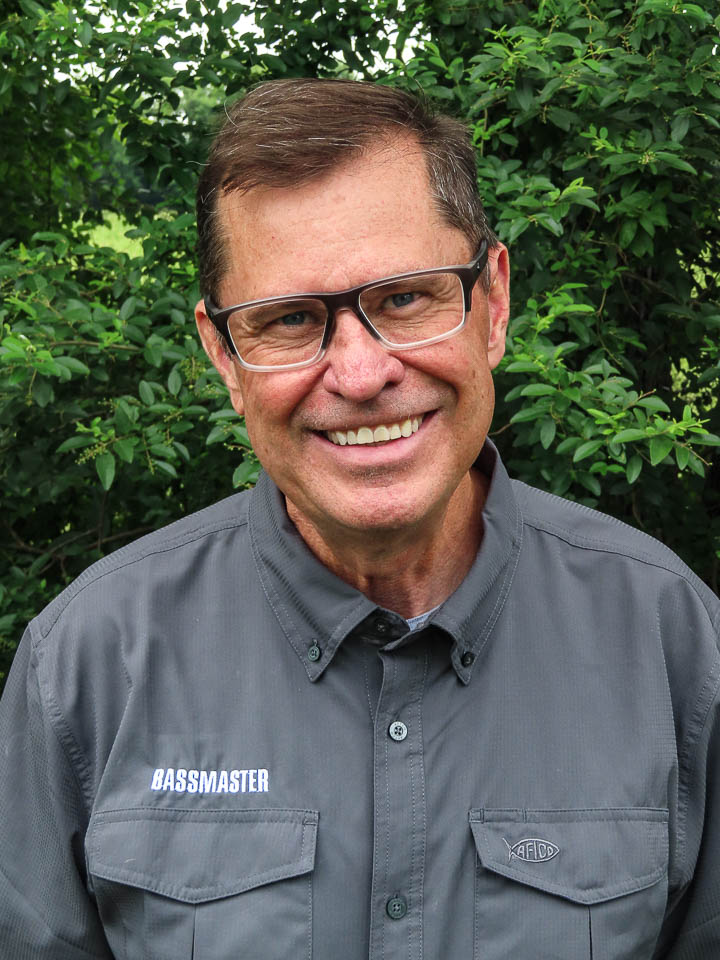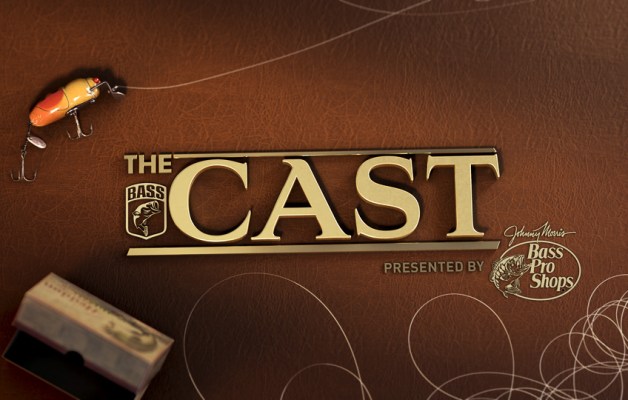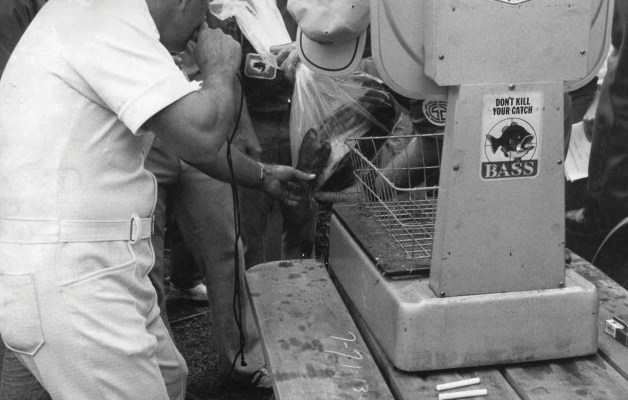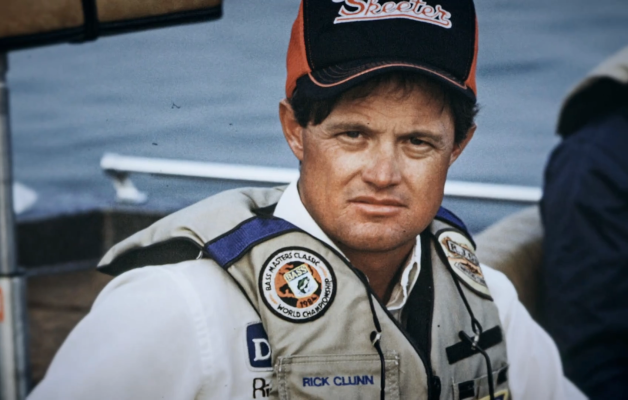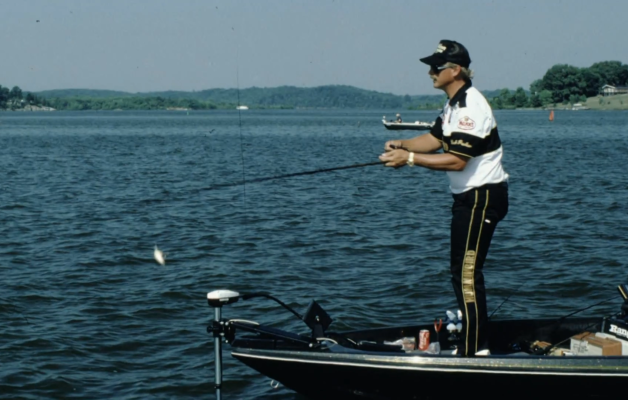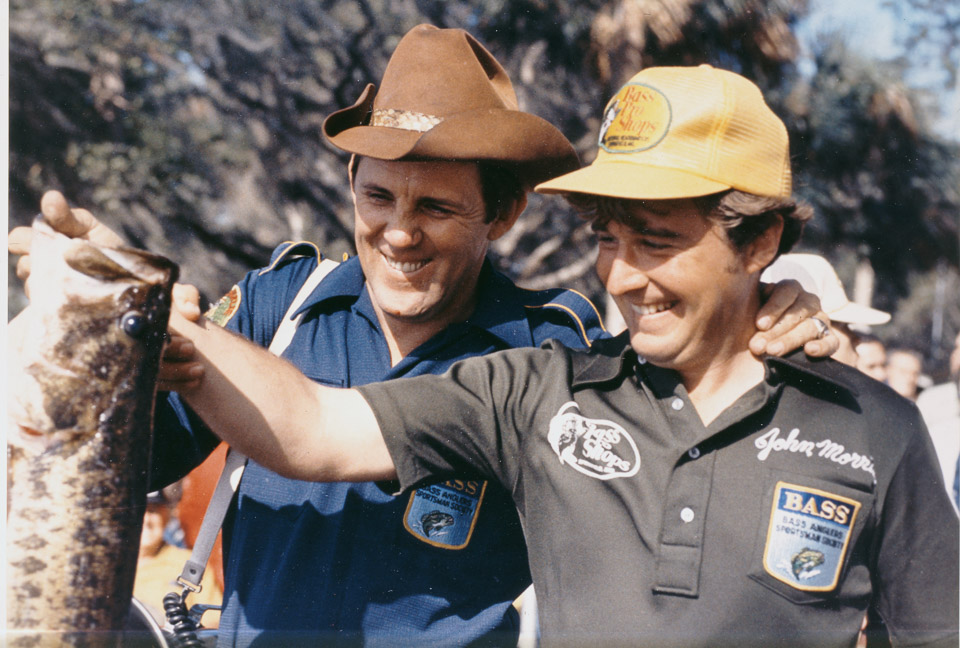
We reached out to some of Ray Scott’s friends to gather their thoughts on how the founder of B.A.S.S. influenced their lives. By all accounts, the central theme throughout was how much Scott cared about the sport, about people and preserving bass fishing for generations to come. The remembrances reflect friendships and how Scott impacted the sport and created a multi-billion dollar industry. Scott passed away peacefully in his sleep on May 8, 2022.
To condense the comments would dilute the very essence of how Scott connected with his friends, also leaders in the sport and the industry. We allowed the tributes to run full length for those reasons.
Johnny Morris, founder and CEO, Bass Pro Shops
Morris met Scott at the 1970 All-American on Table Rock Lake, recognizing early on the role tournaments played in the development of tackle. Bass Pro Shops was born from the need for an all-in-one retail business that specialized in the latest tackle as it evolved on the tour. Morris also gained respect among his peers and customers by fishing in five Bassmasters Classics. And the rest is history.
“If it weren’t for Ray Scott there wouldn’t be a Bass Pro Shops, or as we know it today, the sportfishing industry and even the sport of recreational fishing.
Ray was larger than life and had more impact on the sport than anyone I can think of. I testified with Ray before Congressional committees about passage of the Wallop-Breaux amendment (between 1975-1984). Ray was a visionary in so many ways, and he saw the good that would come from it, knowing the taxes would go back to preserve and benefit sport fishing in the long term.” (The amendment established a federal excise tax on marine fuel and an expanded universe of fishing tackle, with the tax revenues dedicated and returned to the states for fisheries restoration and access programs.)
“Ray had so many more respectable achievements that proved just how much he cared for the sport. He was an early proponent of catch and release, back when we took things for granted, thinking the resource could replenish itself on its own. That led to the boat companies adding aerated livewells. Boating safety was on his mind, too, with the tournament rule requiring us to wear PFDs and use kill switches. That became mainstream in the sport and spread outside of tournaments.
“The happiest days of my life were the first five years, in the early 1970s, when I competed on the Bassmaster tour. It was invaluable to our company being able to see how tackle was evolving, and report directly back to our customers about new hot lures and how those were used to win by the pros.
“It was just the happiest of times, and I’ve made lifelong friends thanks to Ray. We’ll always miss him very much. He just did so much to bring out the joy in bass fishing, to others, and spread it to people of all walks of life.”
Jimmy Houston, 1976, 1986 B.A.S.S. Angler of the Year; host of Jimmy Houston Outdoors
Houston was a 23-year-old insurance salesman from Oklahoma when he fished Scott’s fifth event, the 1968 Eufaula National, finishing in sixth place. Recognized early on for wearing white slacks and a red shirt, with his rapid fire, underhand casts with a spinnerbait, Houston gained a loyal fan following while blazing the trail. He won B.A.S.S. Angler of the Year titles in 1976 and 1986. Jimmy Houston Outdoors became one of the most popular outdoor television shows of all time, for more than 25 years, and Houston is respected as a true ambassador of the sport.
“Ray’s dream did more than create a multi-billion-dollar fishing industry and a sport that we all love. When I look at all the people in my life that are important to me, outside of family, all of them are because of Ray’s dream. Ironically, as visionary as Ray was, I don’t think that dream included creating all of the friendships that came as a result of it all. And many of those friendships have evolved into success stories of their own, that in turn add more realism to Ray’s dream. Friends like Johnny Morris, Bill Dance, Roland Martin. I could go on until the sun sets and not include everyone on a list of my friends that have had a positive impact on bass fishing, because of Ray’s dream. The dream started out having nothing to do with friendships, but it did, and that’s how our industry became successful.
“It’s debatable whether or not we’d have some of the pioneering companies that evolved through Ray’s dream. Ranger Boats, Lowrance and Humminbird electronics. That list could go on and on, like the friendships he created. It certainly would not look like what it does today.
“Ray’s dream changed literally millions of lives. So to me, the success of B.A.S.S. and the industry wasn’t really about companies. It came about as a result of the people surrounding Ray and his dream.”
Bill Dance, 1970, 1974 and 1977 B.A.S.S. Angler of the Year; host of Bill Dance Outdoors
Dance fished Scott’s 1967 All-American and from there, went on to win the B.A.S.S. Angler of the Year title in 1970, 1974 and 1977. Dance has seven B.A.S.S. wins and qualified for the Bassmasters Classic in eight of his nine years on the tour. He retired from the tour in 1980 to devote full time to his business, Bill Dance Outdoors.
“I was there when it all started. Like most things to be really successful you start off crawling and that develops into a walk and that turns in to a run. That’s how B.A.S.S. started with Ray. It began as a dream and became reality.
“Ray realized early on he was on to something with the tournaments. He realized how competition would help grow the sport, the industry and B.A.S.S. The tournament trail became the proving ground, the real-time research and development environment, for everything involved in growing (and preserving) fishing.
“We as tournament anglers would make those discoveries, and our sponsors and the fishing industry would take them to the consumer. We all benefited, regardless if we were a pro or weekend angler. Those innovations born on the tournament trail continued to refine rods, reels, lures, electronics, boats and all of the gear everyday anglers enjoy using.
“I got to witness all of it, from the beginning. I watched Stan Sloan move a trolling motor from the back of the boat to the bow, and that was a direct result of Ray and the tournaments. That goes for every category of tackle, boating and related gear. The tournaments created competition between the manufacturers in everything from electronics, to rods, reels, line and more. As a result, we as anglers benefited from the refinements made to improve our success and enjoyment of the sport.
“Ray ran an honest organization. Whatever he told you, you could take it to the bank. He was a showman. He loved to prank and carry on. He loved people. He was a wonderful person that cared for this industry and the fishermen.
“Many of us would not be doing what we are doing today had it not been for B.A.S.S. and Ray Scott. What’s sad to me though, is that so many people are unaware of everything that Ray Scott did for bass fishing.
“A text message I got from Johnny Morris puts it all into perspective. He wrote:
‘Hey buddy, I’ve been thinking a lot about you and of our buddy Ray. I was going through an old scrapbook of photos and notes from Ray. Thank God we were lucky to get to know him. We only make a few true friends along the journey called life. How blessed are we for the doors that he opened for us.’
“No truer words were spoken than ‘how blessed are we for the doors he opened.’ That sums it all up about Ray Scott and what he means to me.”
Rick Clunn, 1976, 1977, 1984 and 1990 Bassmaster Classic champion
Clunn joined the tour in 1973 and has a remarkable run of success, including four Bassmaster Classic titles and 32 appearances. He won the 1988 B.A.S.S. Angler of the Year title and has 16 first-place finishes.
“Ray was known for pioneering so many things, some of which were more intangible and lesser known. What I respected Ray for was that he understood the importance of establishing credibility in the sport, early on. He had the ability to recruit or attract people who helped establish that credibility. Bill Dance, Roland Martin and others. Bill and Roland didn’t fit the stereotypical image of a bass fisherman back in the day. They were clean cut, intelligent and well spoken. Ray expected that of all of us, to present that credibility and image of what bass fishing would look like as a professional sport.
“In parallel with that was how Ray intentionally formatted the tournaments. Back in the early days, the public perception was that winning a tournament was all about luck. That’s why Ray introduced three-day tournaments to remove the luck factor. Credibility also included erasing the stereotype associated with cheating. That’s why he and Harold Sharp came up with a very comprehensive and strict set of rules that were continually refined over time.
“Ray also knew how to surround himself with people who could add to that credibility. The media always had its eyes on Ray and B.A.S.S., and Bob Cobb was instrumental in guiding the press in the storylines of credibility. Without Bob, I’m not sure if the press would have accepted Ray and his ideas.
“Credibility also extended through how Ray prioritized conservation. He knew we couldn’t keep killing the fish so he embraced catch and release, and livewells, when that was unheard of. Forrest Wood added credibility by adding aerated livewells to Ranger boats, as did other boat manufacturers.
“Ray’s real gift to us was creating credibility, early on, that never existed in tournament bass fishing.”
Helen Sevier, owner, president and CEO, 1986-2001
Scott sought help from an acquaintance whose business specialized in direct mail and marketing of magazines and books. That led him to Helen Sevier, hired as the second full-time employee of B.A.S.S. in 1970, when B.A.S.S. membership stood at 10,000. Membership doubled the next year, and it hit the 500,000 mark by 1990. In 1986, with an investment group, Sevier assumed ownership of B.A.S.S. With it came the title of president and CEO.
“Fifty-two years ago, Morris Dees walked into my office and introduced me to Ray Scott and Bob Cobb. For the next 30 years, for sure, life was never boring and life changing for so many people.
“From Ray’s ‘brainstorm in a rainstorm’ (his words) he changed the world of bass fishing and the lives of so many forever. B.A.S.S. was literally an evolution and a case study in listening and responding to people — teaching them how to be better bass fisherman, organizing them into a meaningful group that improved and protected the resource for generations to come, creating and bringing products to market that put more ‘catching into fishing’ while simultaneously making it more fun, instilling a sense of belonging and pride in a patch he sketched on a pad and so much more. Without his passion for bass fishing, B.A.S.S and all it created — from the pros to an industry generating more $100 billion in annual impact — would never have happened.
“Personally, he gave me an opportunity in what was primarily a man’s world and never winced or apologized for it. Those of us that worked at B.A.S.S., and for all those bass fishermen throughout the world, we simply say thanks for the ride and for allowing us to be a part of the world’s greatest organization. Truly there will never be another Ray Scott. On a day like today it’s appropriate to bow your head and tip your hat for the passing of a legend. To know him was to love him.”
Dave Precht, Bassmaster Magazine editor, 1984-2003; vice president of editorial, communications through retirement in 2019
Precht, former outdoor writer for The Houston Post newspaper, joined B.A.S.S. as publicist for the tournament trail and staff writer for Bassmaster in 1979. He became editor in 1984, when Bob Cobb became producer/director of The Bassmasters TV show. Precht held senior management positions until retirement after 40 1/2 years with B.A.S.S.
“I was very fortunate to have a front row seat to see the shaping of the sport, and it was just exciting to see it evolve. I could tell something great was happening then, and now when I look back, I’m just amazed at everything that took place.
“What I admire and respect was Ray’s dedication to serving bass fishermen, through his perseverance and passion for the sport. There are many people today who love the sport of bass fishing, but unaware of all Ray did, and how much the sport changed in the years that he was in control of it.
“Literally millions of people worldwide owe a debt of gratitude to Ray Scott for the way this sport has been shaped. There aren’t many people who can say their lives affected so many people in a positive way. And he was certainly one of those people.
“Ray was a wonderful friend. We spent untold hours and days fishing. I was amazed that he not only loved it, but he was good at it. He was an excellent angler. He understood it and his heart was in it. I learned so much about fishing, but more importantly I learned about life.
“I certainly am in the forefront among those owing him a great deal of gratitude. I spent over 40 years in a career that I absolutely loved and it’s all because of him, and later on Helen Sevier and other people with whom he surrounded himself.
“I’m thankful for my blessings every day and I often think about Ray Scott and his impact on my life.”
Earl Bentz, founder and president, Caymas Boats
Bentz was a member of the Mercury Racing Team when he met Scott in 1973. The friendship lasted for 50 years, with Bentz starting Stratos Boats, Triton Boats and most recently, Caymas Boats. Scott worked with Bentz during the Triton years as a promoter, as the friendship continued to flourish.
“Ray was a visionary. He could see opportunity in things that were overlooked by others.
“The most important character trait about Ray was that he loved people. That was where he really excelled. Ray had an uncanny ability to choose good people to work alongside him. Ray was the front man, but he had talented people handling the details. Bob Cobb, Harold Sharp, Helen Sevier, Dave Precht. Each one of them had specialized talents that made B.A.S.S. grow as a successful organization.
“Ray’s strength was also in what I call romancing people. Together we worked hundreds of outdoor and boat shows across the nation. Some years we’d work 40 shows each year in as many cities. In every case, he treated everyone the same, whether you were the president of the United States, or anyone else. He showed respect to everyone, provided them with encouragement and made them feel special and important. And that’s why everyone wanted to be associated with anything that Ray was associated with, such as B.A.S.S.
“Ray was the most creative person that I knew and he very much cared about fishermen, B.A.S.S. members and a true friend to all in this industry. He wanted to see everyone enjoy success.
“Above all else, Ray was a true friend of mine for nearly 50 years.”

